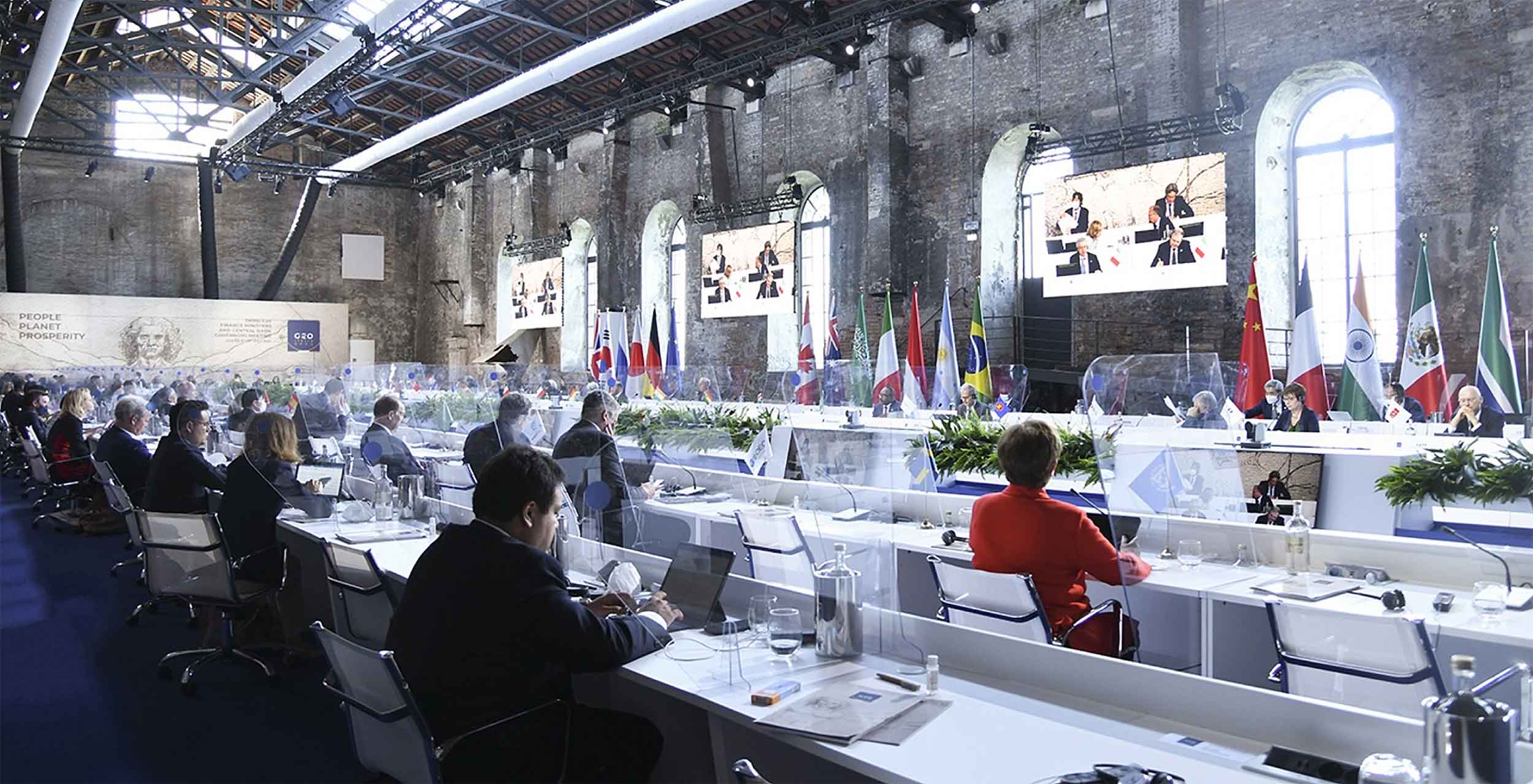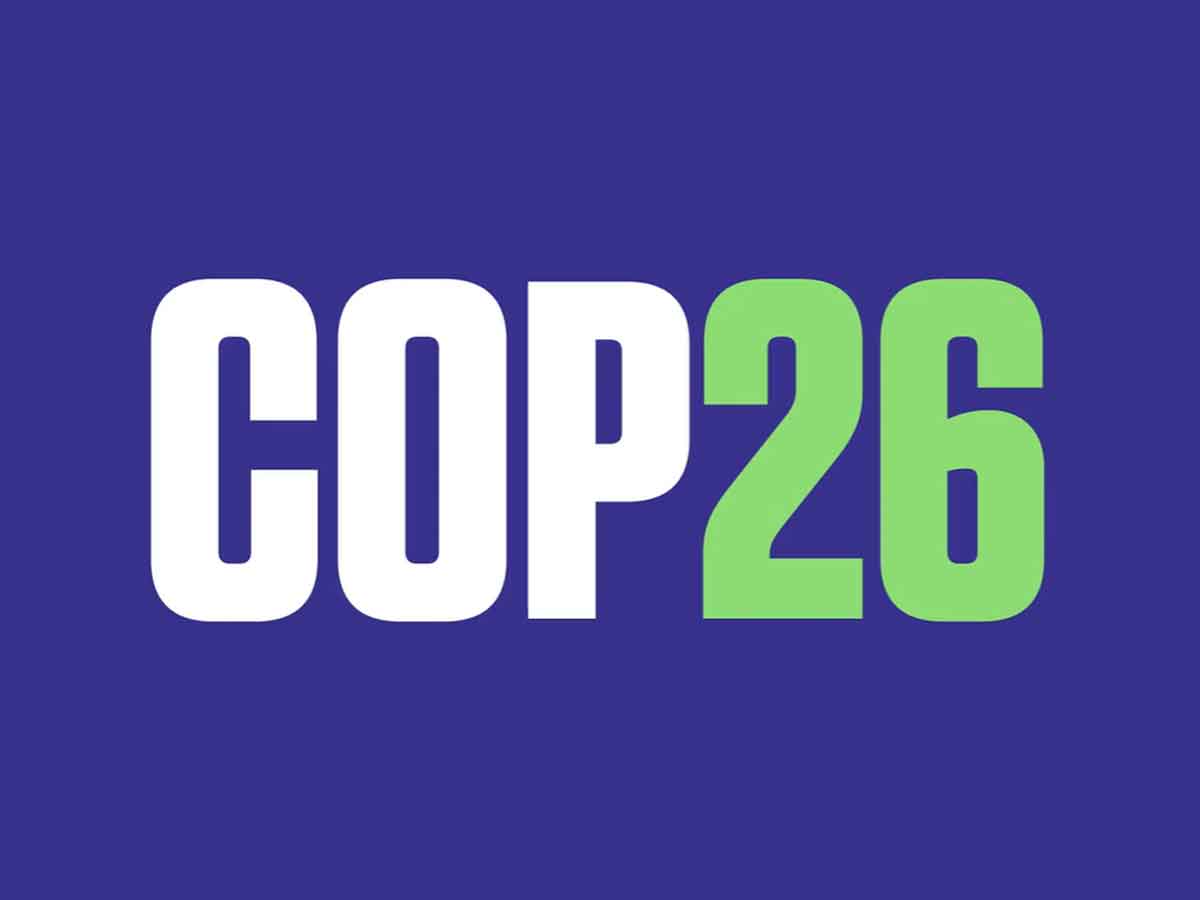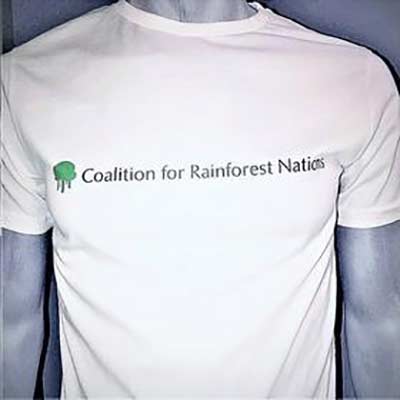Policy News: The Road to COP26
July 30, 2021, New York
T20 Urges Nations to strengthen the REDD+ climate instrument

Naples, Italy, July 22-23, 2021, The Think20 (T20) — the engagement group of the G20 that brings together think-tanks, universities, and other research centers — made a statement at their conference in Naples recommending that the G20 countries strengthen the REDD+ mechanism for forests and extend it to Blue Carbon from coastal and marine ecosystems. The proposal proposed that efforts in this area would allow for covering the Earth’s two largest, most diverse, and most productive ecosystems to deliver significant economic and climate benefits.
“We call on the G20 countries to recognize nature-based solutions in addition to budgetary instruments to fight – and adapt to – climate change. We recommend that they support the Restore Platform with targets to restore forest ecosystems; reduce air and lead pollution in cities; support green coasts in small island developing states; raise renewables share of energy; and lower land-use stress.”
The Think20 (T20) is producing practical policy proposals for G20 decision-makers ahead of COP26. The Task Force on Climate Change, Sustainable Energy and Environment believes that the G20 has a crucial role to play in making sure that the recovery from the pandemic increases the resilience of socio-economic systems to the effects of climate change and incentivize the urgently needed transition towards a decarbonized economy that respects the planetary boundaries and intergenerational justice. The T20 called on G20 Environment and Energy Ministers to act with respect to the following policy areas:
- Fighting climate change while re-launching the global economy
- Just transition towards climate-neutral economies
- Preserving marine biodiversity and natural protected areas and recognizing nature-based solutions to fight climate change and biodiversity loss
To learn more read the T20 Statement here:
Informal Consultations on the Paris Agreement Begin…

Due to the COVID-19 pandemic the annual United Nations Climate Change negotiating sessions took place from 31 May to 17 June 2021 as a fully virtual conference. To meet the challenges and constraints of virtual meetings, the sessions met for three weeks instead of the usual two. The two groups of meetings called the subsidiary bodies (SBs) held plenary sessions and delegates convened for informal consultations on a wide variety of issues related to the implementation of the Global Climate Agreement, or the Paris Agreement. In addition, other events led by the UK, who holds the presidency of the climate summit (COP26), took place.
The Coalition for Rainforest Nations discussed multiple issues during the conference with a particular focus on how the rules for the carbon market mechanism under the Paris Agreement will work. Carbon markets are important for the Paris Agreement as they will allow carbon reductions to be traded between countries and between countries and companies. Other key topics addressed during the May-June session included proposals to finalize how the Paris Agreement will work, which is called the “rulebook”, and an agreement on the timeframe for all countries to submit their national emissions reductions targets, or Nationally Determined Contributions (NDCs).
As the meetings were virtual, no direct country negotiations were conducted, and no formal decisions were taken during the three weeks of consultations. Rather, the meeting chairs presented the informal notes, capturing progress across the various agenda items.
On Article 6 of the Paris Agreement, limited progress was made while some gaps in the texts carried forward from Madrid were identified. CfRN will continue to work to address several crunch issues which still need to be addressed at the highest political level at COP 26 in Glasgow, such as:
- carrying over pre-2020 carbon credits from earlier market-based emissions reductions (pre-2020),
- how to finance climate adaptation without adding taxes for developing countries
- metrics to account for carbon credits,
- how to ensure the environmental integrity of carbon credits,
- how to operationalize the overall reduction in global emissions


